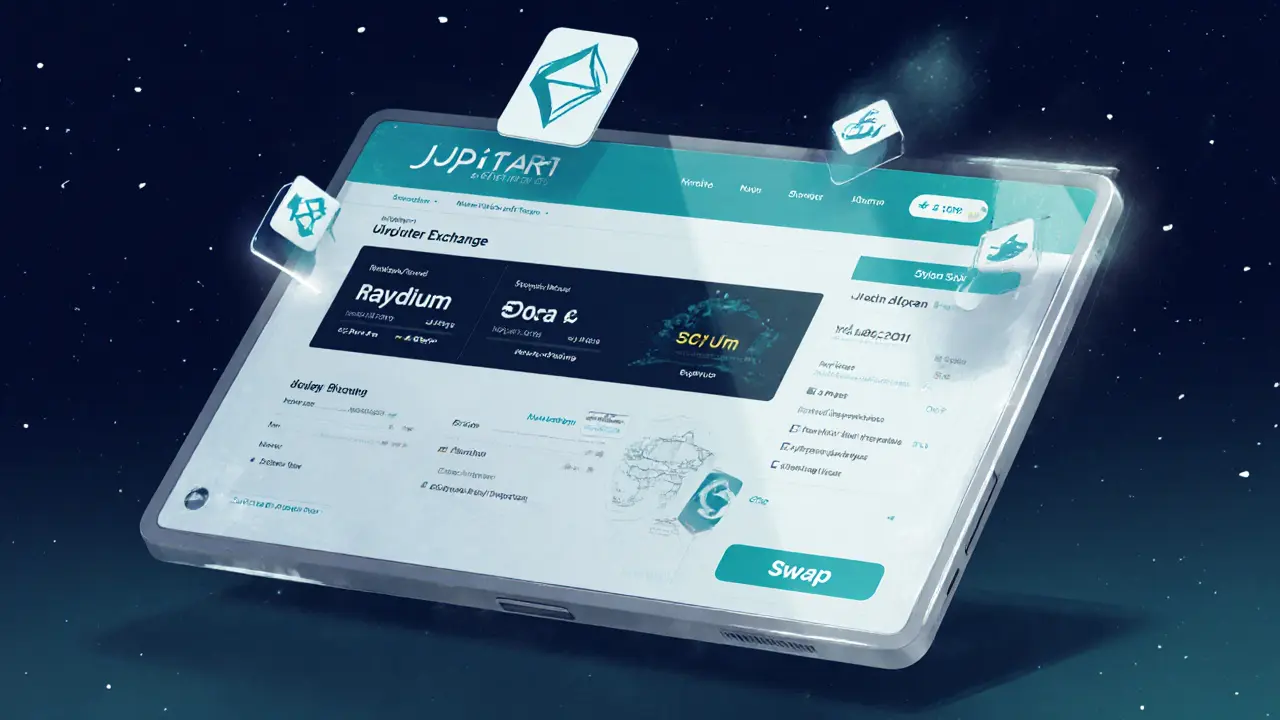Solana DEX: Fast Swaps on the Solana Blockchain
When working with Solana DEX, a high‑speed decentralized exchange built on the Solana network. Also known as Solana decentralized exchange, it offers near‑instant token swaps with fractions of a cent in fees. This speed comes from Solana’s proof‑of‑history design, which timestamps transactions before they hit the ledger. As a result, users can trade dozens of tokens in seconds without waiting for confirmations that would stall on older chains. The ecosystem around Solana DEXs has expanded rapidly, giving traders access to deep order books, automated market makers, and cross‑chain bridges—all while keeping costs low.
Why Decentralized Exchanges Matter
A Decentralized Exchange, a peer‑to‑peer platform that lets anyone trade crypto without a central authority. Also called a DEX, it relies on smart contracts to match orders and settle trades. Solana DEX is a specific instance of this broader class, inheriting the trust‑less benefits while adding Solana’s ultra‑low latency. Users keep full control of their private keys, meaning there’s no single point of failure for hacks or freezes. Because the exchange logic lives on-chain, anyone can audit the code, fostering transparency that traditional order‑book exchanges often lack.
The power of a decentralized exchange hinges on two supporting forces: the underlying blockchain and the liquidity that fuels trades. On Solana, the Solana blockchain, a high‑throughput network using proof‑of‑history and proof‑of‑stake. Also referred to as Solana chain, it processes up to 65,000 transactions per second and settles them in under a second. Those performance numbers let DEXs run complex automated market maker algorithms without the lag that plagues older chains. For traders, that translates into tighter spreads, less slippage, and a smoother experience when swapping tokens across the platform.
At the heart of every DEX are Liquidity Pools, collections of token pairs that provide the capital needed for instant swaps. Also known as pool reserves, they allow users to trade directly against the pool rather than waiting for a counter‑party. On Solana DEXs, these pools are often populated by incentive programs that reward liquidity providers with native tokens or a share of swap fees. The deeper the pool, the lower the price impact for large trades, which is why many projects launch dedicated farms to attract capital. Understanding how pools work, how fees are calculated, and how to gauge pool health is essential for anyone looking to maximize returns or minimize costs.
The Solana DEX landscape is constantly evolving, with new platforms, bridge integrations, and yield strategies emerging weekly. Below you’ll find deep dives, reviews, and step‑by‑step guides that walk you through setting up wallets, finding the best swap routes, and evaluating security on Solana DEX platforms.
Jupiter Exchange Review: Solana DEX Aggregator Deep Dive
An in‑depth review of Jupiter Exchange, the Solana DEX aggregator. Covers how it works, fees, security, user experience, and how it compares to other aggregators.
VIEW MORE
